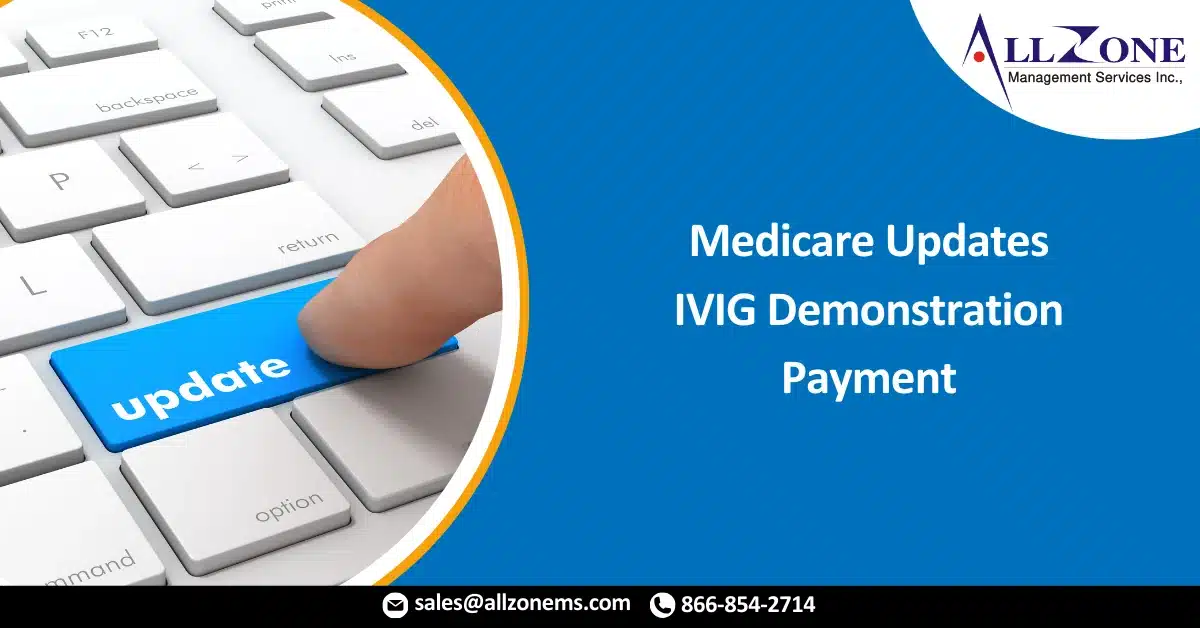Healthcare providers submitting claims for services, supplies, and accessories ordered under the Medicare Intravenous Immune Globulin (IVIG) Demonstration can expect to see an approximate 2.1 percent payment increase over last year. The calendar year 2023 rate for HCPCS Level II code Q2052 is $392.56, compared with $384.59 in 2022.
What is the Medicare Intravenous Immune Globulin Demonstration?
Initially started Oct. 1, 2014, the Medicare IVIG Demonstration evaluates the benefits of providing payment for items and services needed for the in-home administration of IVIG for the treatment of primary immune deficiency diseases (PIDDs). IVIG is an antibody used to treat weakened immune systems and other conditions to prevent infections. It is commonly used to combat lupus, Guillain-Barre syndrome, Kawasaki disease, and neurological diseases such as multiple sclerosis.–
The demonstration will end on Dec. 31, 2023, unless extended by Congress. The number of eligible Medicare beneficiaries who can be enrolled in this demonstration has increased from 4,000 to 6,500 nationwide. Under this demonstration, HCPCS Level II code Q2052 Services, supplies and accessories used in the home under the Medicare IVIG demonstration provides a bundled payment under Part B for items and services that are necessary to administer IVIG in the home to enrolled beneficiaries who are not otherwise homebound and receiving home healthcare benefits. The demonstration only applies to situations where the beneficiary requires IVIG for the treatment of PIDDs or is currently receiving subcutaneous immune globulin to treat PIDDs and wishes to switch to IVIG.
Services covered under the demonstration are provided and billed by the specialty pharmacies that carry the immune globulin drug, which is covered under Medicare Part B. Demonstration covered services will be paid as a single bundle and will be subject to coinsurance and deductibles in the same manner as other Part B services.
More about PIDDs
There are about 200 different forms of PIDDs affecting more than 500,000 people in the United States. PIDDs are rare, genetic disorders that impair the immune system. Without a functional immune response, people with PIDDs may be subject to chronic, debilitating infections, which can increase the risk of developing cancer. Some PIDDs can be fatal. PIDDs may be diagnosed in infancy, childhood, or adulthood, depending on disease severity.
PIDDs result from genetic mutations affecting one or several components of the immune system, including cells and proteins. These mutations may cause parts of the immune system to be defective, present in fewer quantities than normal, or be absent.
In 50-60 percent of cases, PIDDs relate to defects in B lymphocytes (B cells). These immune system cells make antibodies, which are specific proteins in the body. The immune system uses antibodies to destroy pathogens (disease-causing agents) like bacteria or viruses.
For example, in autoimmune lymphoproliferative syndrome (ALPS), unusually high numbers of white blood cells called lymphocytes accumulate in the lymph nodes, liver, and spleen leading to their enlargement. ALPS can also cause anemia (low level of red blood cells), thrombocytopenia (low level of platelets), and neutropenia (low level of neutrophils, the most common type of white blood cell in humans). These imbalances can increase the risk of infection and hemorrhage.
For More Information: https://www.aapc.com/blog/87080-medicare-updates-ivig-demonstration-payment-for-2023/

